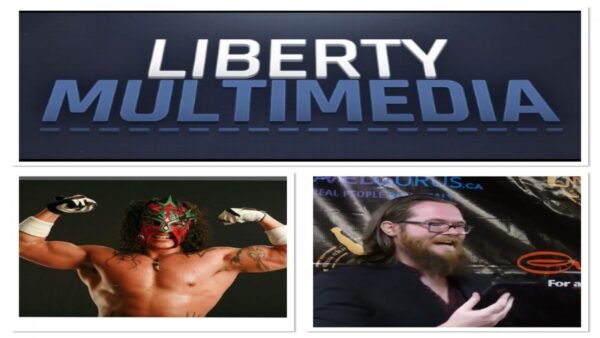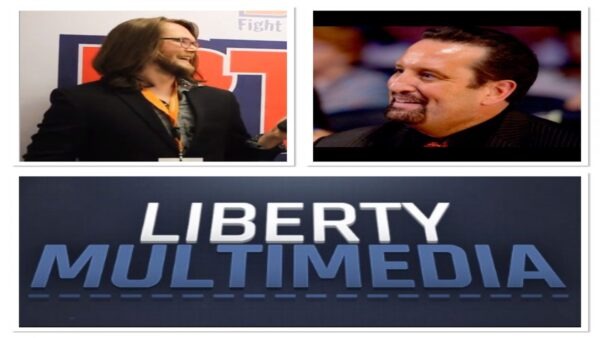Beaver First Nation’s next election is Nov. 27, 2020, which will elect a Chief and Council on a four-year term. Current Chief of Beaver First Nation Trevor Mercredi is running against Douglas Henry Adekat, Lorne Bulldog Sr., and Gary Lee Kipling, while another 22 members are running for four Council positions.
Former Chief of Beaver First Nation Harvey Bulldog has been challenging the legitimacy of the band’s elections since 1998, calling the process, “a fraud, laced with corruption and conspiracy.”
Before Beaver First Nation’s last election in Nov. 2016, these elections were based on two-year terms, held under the Indian Act, and administered with input from Indian and Northern Affairs Canada (INAC). This changed when Beaver First Nation adopted the First Nations Election Act on June 22, 2016. The Act allows each reservation to create their own “custom election codes” and has been passed in at least 346 of Canada’s 618 federally recognized reserves.
A public release in 2016 from Beaver First Nation stated “Chief and Council see many benefits to elections being held under this new system and have made a choice to move to it.”
Some key changes highlighted in the document were to establish four-year terms, shorten the election cycle from 79 days to 65, adding a $250 fee to become candidate for Chief (refundable with conditions), and making changes to the mail-in ballot system. Beaver First Nation Chief and Council said they chose to move to the First Nations Elections Act for three key reasons:
“To have longer terms of office that will allow council to develop and implement long term goals and objectives that will benefit the community, and also to make our community more attractive for investment and long-term projects.
To have a better nomination process that encourages serious and dedicated candidates to run, and discourages others who may have run in the past simply because they were nominated.
To have a better mail-in ballot system.”
The accuracy of the mail-in ballot system has been questioned by Former Chief Bulldog and his brother Vern for over 20 years. They have been writing appeals to INAC and Elections Canada since 2000, and are in the process of taking their case to the Human Rights Commission of Canada.
“We are in a dilemma with how our elections are being administered,” said Bulldog in a letter to Elections Canada in 2014. “A major sore point is the mail-in ballots, who receives them, and in reality who is really voting?”
According to Indigenous & Northern Affairs Canada (INAC), there are 393 people living on reserve in Beaver First Nation, however the total registered population is more than twice that number at 881. Many have registered over the last 35 years following the passage Bill C-31, which amended the Indian Act and made significant changes to Indian Status and band membership. Its major goals were listed as addressing gender discrimination, restoring status to those enfranchised by force, and allowing bands to control their own membership as a step towards self-government
“I think [if] you want to get elected into band office, you should be living on the reserve,” said Vern Bulldog. “How can the elections change from every two years to four years without any community meetings here?”
In some reserves like Beaver First Nation, most of the eligible votes could potentially be coming from outside the region.
“People who have gained treaty status and many members living ‘off reserve’ don’t really know what’s happening on reserve,” said Former Chief Bulldog. “And most don’t really care, but they are allowed to cast ballots. Over history, a candidate may receive less than 25% of the popular vote. In the 2012 election, winning candidates received almost an unprecedented 50 per cent of the popular vote. The general membership had complaints that a majority didn’t vote that way. A vast majority of the votes for the winning candidates were from off reserve mail in ballots. This has contributed to vote stacking; people receiving bundles of mail ballots. Since scrutinizers are not allowed to view anything, no one really knows who is voting at these elections.”
Beaver First Nation Chief and Council also addressed vote stacking and buying in their 2016 public notice. Members were informed that the new First Nations Elections Act contains provisions for several new criminal offences and penalties for these activities, which include:
“Offering money or other goods or regards to specific electors that are conditional on voting for a certain candidate (vote buying.)
Buying and selling mail-in ballots.
Voting when knowing you are not eligible to vote.
Pretending to be someone else in order to vote.
Intimidating people to vote a certain way or not at all.”
Bulldog has been writing and speaking out against these types of activities for years, alleging that they are common place throughout Canada and compromise the integrity of a fair election.
“The people deserve better,” said Bulldog. “The crux of the issue is that Electoral Officers are more often than not “buddy buddy” with the existing councils, making it just about impossible for any new candidates to gain access to elected council. It seems like you don’t have a snowballs’ chance in hell of doing anything legitimate.”
Another key change to Beaver First Nation’s elections enacted in 2016 is that mail-in ballots are no longer being automatically sent out to all off-reserve members. Anyone who wants a mail-in ballot must to fill in a form asking for one and send it to the Electoral Officer Bernie Makokis, who was hired by Chief and Council. Makokis needs to receive it no later than six days before the election (Nov 18), along with one piece of photo ID.
Makokis made headlines in 2017 after overseeing a controversial election in O’Chiese First Nation – a reserve located 50km northwest of Rocky Mountain House – which also opted into the First Nations Elections Act. Adrian Strawberry was running against six-term Chief Darren Whitford, however Makokis withdrew Strawberry’s candidacy based on a rare linguistic rule.
The band’s custom election rules stated that all candidates must be fluent in one of the local Indigenous languages. Despite being able to speak Saulteax fluently, Strawberry said he was never given a chance to prove it, other than at a brief test in the nomination meeting,
A test he passed.
Strawberry was then told his candidacy was in good order, but later that day on Jan 11, 2017, he received a text from Makokis saying concerns were raised about his fluency. After meeting with Makokis, Strawberry said they agreed to let his name stand on the grounds he could pass a “linguistic fluency test” within three days.
Strawberry said a test was never granted despite repeated requests, and two days later received an email from Makokis saying his name was being stripped from the nominee list. This action awarded Chief Whitford a seventh term by acclamation.
“I was obviously very livid,” Strawberry told the CBC News in 2017. “That’s absolutely unacceptable.”
Makokis declined to answer any questions regarding Strawberry’s story and told investigative reporter Robson Fletcher that it has to go through legal, who could only say that, “it’s up to the Chief Electoral Officer to determine whether or not an individual can be a candidate.”
Strawberry had been appealing the decision but dropped his case after Chief Whitford died in December 2017. After an extensive meeting with Liberty Multimedia Inc., he politely declined to share an immediate follow up.
“Thank you for your interest in my story,” said Strawberry. “Unfortunately, at the advice of my legal team, I am unable to share my experience with your organization at this time. An Indigenous lawyer is interested in writing about my experience and would not be in my best interest to share it with others at this time. Perhaps in the near future if you would still be interested. Thank you for your time and interest. I look forward to collaborating with you in the near future.”
Liberty Multimedia inquired about what measures Makokis would be taking to ensure a fair election in Beaver First Nation on Nov. 27, 2020.
“Google First Nations Elections Act,” said Makokis in an email response. “It will give you all the specifics. Thank you.”
The First Nations Elections Act contains guidelines for bands to adopt their own custom elections codes and forbids activities such as bribery and forging ballots. Under the Act, the electoral officer is granted authority to establish polling stations, procedures for obtaining and using mail-in ballots, and the counting of votes, as authorized by the Governor in Council.
Section 38 (2) of the First Nations Elections Act states that, “An electoral officer who fails to perform their duty under section 24 or an electoral officer or deputy electoral officer who fails to perform any of their duties under the regulations is guilty of an offence.“
However the only duties of an electoral officer outlined in Section 24 are to break a tie, and ensure Chief and Council positions are awarded based on “the highest number of votes.” Contesting an election result is extremely costly and can take years in provincial/federal courts, and INAC is no longer involved in the elections appeals process.
Beaver First Nation Chief Trevor Mercredi could not immediately be reached for comment. Crown-Indigenous Relations, Northern Affairs Canada and Indigenous Services Canada have agreed to respond to a series of questions related to this story, which will be published immediately upon arrival.


























































